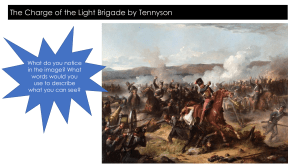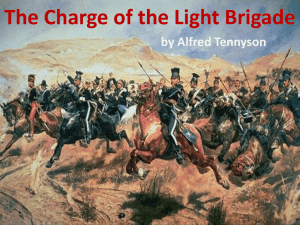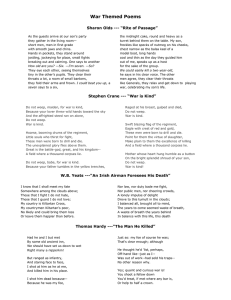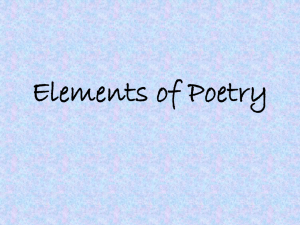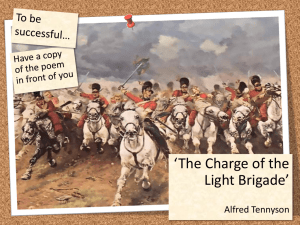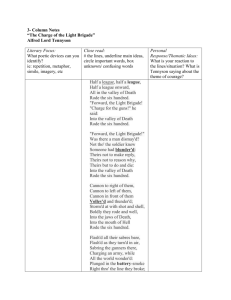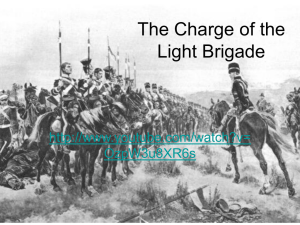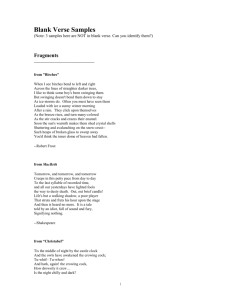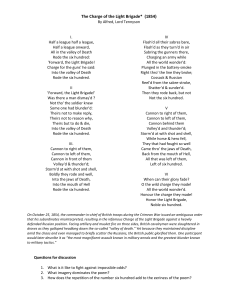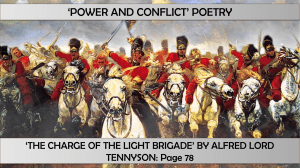January 26 - Impact of Repetitions
advertisement
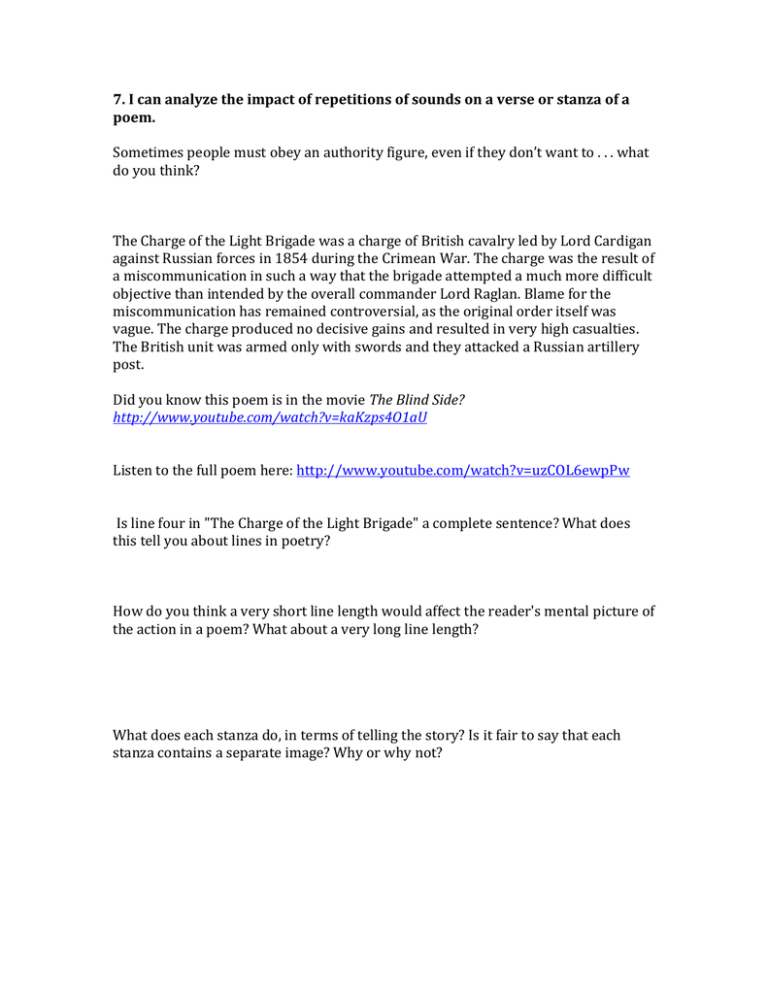
7. I can analyze the impact of repetitions of sounds on a verse or stanza of a poem. Sometimes people must obey an authority figure, even if they don’t want to . . . what do you think? The Charge of the Light Brigade was a charge of British cavalry led by Lord Cardigan against Russian forces in 1854 during the Crimean War. The charge was the result of a miscommunication in such a way that the brigade attempted a much more difficult objective than intended by the overall commander Lord Raglan. Blame for the miscommunication has remained controversial, as the original order itself was vague. The charge produced no decisive gains and resulted in very high casualties. The British unit was armed only with swords and they attacked a Russian artillery post. Did you know this poem is in the movie The Blind Side? http://www.youtube.com/watch?v=kaKzps4O1aU Listen to the full poem here: http://www.youtube.com/watch?v=uzCOL6ewpPw Is line four in "The Charge of the Light Brigade" a complete sentence? What does this tell you about lines in poetry? How do you think a very short line length would affect the reader's mental picture of the action in a poem? What about a very long line length? What does each stanza do, in terms of telling the story? Is it fair to say that each stanza contains a separate image? Why or why not? What is onomatopoeia? If you can’t remember, look it up. Can you find an example of onomatopoeia in the fourth stanza? What word or words create a sound effect? Say the words aloud so you can hear their sounds. What is alliteration? If you can’t remember look it up. Can you find an example of alliteration in the fourth stanza? What consonant sound is repeated? How does the sound that is repeated emphasize the action that is taking place in the poem at this point? Tennyson uses the same lines to open both stanza three and stanza five: Cannon to right of them, Cannon to left of them, Cannon behind them Volley'd and thunder'd; Storm'd at with shot and shell Why do you think he repeated these lines, particularly the word "cannon"? Silently tap out the rhythm of these words on your desk with your fingers as you read them to yourself. What effect do you feel he was trying to achieve? What message does he wish to pass to the reader? The Charge of the Light Brigade Half a league half a league, Half a league onward, All in the valley of Death Rode the six hundred: 'Forward, the Light Brigade! Charge for the guns' he said: Into the valley of Death Rode the six hundred. 'Forward, the Light Brigade!' Was there a man dismay'd ? Not tho' the soldier knew Some one had blunder'd: Theirs not to make reply, Theirs not to reason why, Theirs but to do & die, Into the valley of Death Rode the six hundred. Cannon to right of them, Cannon to left of them, Cannon in front of them Volley'd & thunder'd; Storm'd at with shot and shell, Boldly they rode and well, Into the jaws of Death, Into the mouth of Hell Rode the six hundred. Flash'd all their sabres bare, Flash'd as they turn'd in air Sabring the gunners there, Charging an army while All the world wonder'd: Plunged in the battery-smoke Right thro' the line they broke; Cossack & Russian Reel'd from the sabre-stroke, Shatter'd & sunder'd. Then they rode back, but not Not the six hundred. Cannon to right of them, Cannon to left of them, Cannon behind them Volley'd and thunder'd; Storm'd at with shot and shell, While horse & hero fell, They that had fought so well Came thro' the jaws of Death, Back from the mouth of Hell, All that was left of them, Left of six hundred. When can their glory fade? O the wild charge they made! All the world wonder'd. Honour the charge they made! Honour the Light Brigade, Noble six hundred! ~Alfred Lord Tennyson
